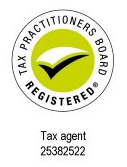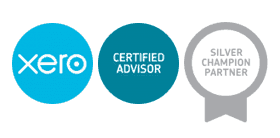Australia’s skills shortage remains a challenge for employers, with businesses now more willing to explore different avenues of finding talent, including taking on retirees.
A survey by recruiter Robert Half reveals 58% of employers have hired a retiree in the past 12 months and 37% of employers who haven’t would consider it in the future.
Hiring retirees has been a smart strategy for employers, as about half who have (47%) would do it again. Only 5% of companies stated they have not hired — nor plan to hire – a retiree.
The Australian Bureau of Statistics shows 40,600 more workers aged 65 and over were employed in February than in the same month the previous year. Retirees are largely seeking to return to work to increase their income and keep up with the rising cost of living.
HARNESSING THE VALUE OF AN EXPERIENCED WORKFORCE
According to the survey, employers are most commonly hiring retirees who are re-entering the workforce because they:
- have specialised expertise (60%)
- can contribute quickly (57%)
- have strong business acumen and knowledge of key business issues (51%)
- can mentor less experienced colleagues (49%)
Andrew Brushfield, director at Robert Half, said “Experienced workers bring a multitude of benefits to a business. They can share the knowledge and skills they’ve acquired throughout their career with current staff, they have a network of people across many areas, and they are often highly skilled and knowledgeable, which means they are able to offer a broad range of help to any business.”
He identified four key benefits retired employees could bring to a business:
Commercial acumen
Senior employees bring professional skills honed over a variety of industries, cultures, financial conditions, and teams. A retired employee has navigated economic slowdowns and periods of great growth, staff conflicts and great collaboration, and everything that comes in between. This allows them to assess and respond to problems with an analytical, measured insight rather than leading with an emotional or instinctive perspective.
Technical expertise
Accumulated over a number of years, senior workers bring deep expertise in their craft. As well as being able to execute their tasks to a high level based on familiarity with the subject matter, retired employees can apply an understanding of what has worked – or failed – in the past to optimise processes and procedures. Whether returning to a familiar role or taking on a new remit, experienced employees are skilled at translating broad scopes of work into actionable priorities.
Adaptability
While some employers may fear that retired employees will be less responsive to digital transformation efforts than their ‘digital native’ counterparts, the reality is that older workers have embraced more technological and procedural advances than any other demographic in the workforce today. They are adept at layering new technical advances into their work, using this to complement the core business fundamentals that can only be developed over time.
Diverse perspectives
By being a dominant consumer group, the perspective of retired employees is a valuable asset when it comes to strategy, planning, and problem-solving processes. More broadly, and importantly, ensuring adequate representation and diversity within a team is an important part of doing good business and making sound commercial decisions.
There are also employment incentives offered by the government so it makes sense to include the employment of older workers in your human resources strategy.









